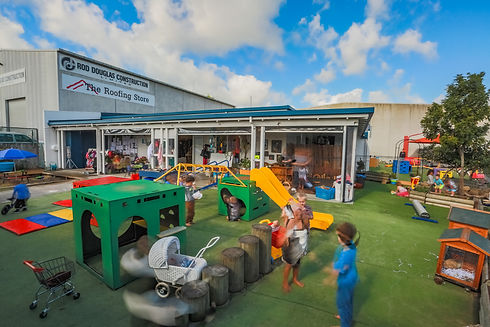


OUR PHILOSOPHIES
WE BASE OUR CARE ON
3 Philosophies
At Christopher & Robin Early Childhood Centre we base our care and education upon these three philosophies:
-
Reggio Emilia
-
Schemas
-
RIE by Magda Gerber


OUR
Mission
To provide a safe home away from home and to encourage children to take a growing responsibility for their own quality learning and behaviour and to achieve this with a Christian emphasis, in partnership with the family.
At Christopher & Robin we will:
-
Nurture and provide a warm, caring environment for each child
-
Encourage a child's family to engage in their care and education as a co-operative venture
-
Contribute to the child feeling in control of his/her own learning
-
Expose the child to a wide range of expressive media to develop the spontaneous joy of successful learning
-
Equip the child with strategies of "how to learn" including the confidence to take risks
-
Allow the child time to reflect in order to achieve quality
INSPIRED BY
Reggio Emilia
We are inspired by the philosophy of the Reggio Emilia approach and its principles of respect, responsibility, and community. This is achieved through exploration and discovery in a supportive and enriching environment based on the interests of the children.
The Reggio Emilia Philosophy is based upon the following set of principles:
-
Children must have some control over the direction of their learning;
-
Children must be able to learn through authentic experiences of touching, moving, listening, seeing, and hearing;
-
Children have a relationship with other children and with material items in the world that they explore and
-
Children must have endless ways and opportunities to express themselves.
The Reggio Emilia approach to teaching young children puts the natural development of children as well as the close relationships that they share with their environment. We view the environment as the “third teacher”. We believe it gives children important messages and cues. In other words, the environment ‘speaks’ to children - about what they can do, how and where they can do it and how they can work together.


ABOUT
Schemas
Schemas are repeated patterns in children’s play. More specifically, a schema is a thread of thought which is demonstrated by repeated actions and patterns in children’s play or art. Children repeat actions over and over again, as if testing something out – and indeed they are. Knowing about schemas helps us to understand the patterns we see in children’s play and why they are so driven to repeat them.
Some Examples of schema play are:
-
Transporting: Picking thing up, moving them and dumping them. Loading prams and trolleys up with objects and moving them from place to place.
-
Transforming: Materials which change shape, colour or consistency. Nothing stays clean.
-
Trajectory: Horizontal, vertical or diagonal movement of things or self. Things flying through the air, child moves at a run.
-
Rotation: Things that turn, loves wheels, exploring curved lines, loves circles.
-
Enclosing/enveloping: Surrounds things, likes getting inside a defined area. Loves boxes or wrapping themselves up in layers of blankets. Hides.
-
Connecting: Joining things together, ties things up.
-
Disconnecting: Opposite to connecting. Takes things apart or scatters parts around.
-
RIE (resources for infant educarers) and Magda Gerber philosophy
We understand that an unhurried day is more comfortable for infants and adults. We know that transitions and routines can happen at natural moments, providing a background framework rather than a fixed daily structure. We value care moments as precious opportunities for learning and building strong relationships
PRINCIPLES OF
RIE by Magda Gerber
Resources for Infant Educarers "RIE"
In order to foster quality care RIE encourages
-
Basic trust in the child to be an initiator, an explorer and a self-learner
-
An environment for the child that is physically safe, cognitively challenging and emotionally nurturing
-
Time for uninterrupted play
-
Freedom to explore and interact with other infants
-
Involvement of the child in all care activities to allow the child to become an active participant rather than a passive recipient
-
Sensitive observation of the child in order to understand the child’s needs
-
Consistency, clearly defined limits and expectations to develop self-discipline
